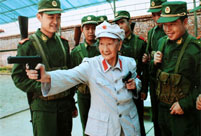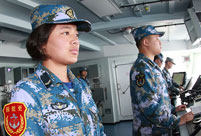

In early September, leaders of 20 major world economies and eight guest countries gatheredin the picturesque Hangzhou to discuss the course of the global economy, one of the most important agendas in today’s world.
At the G20 Hangzhou Summit, Chinese President Xi Jinping proposed to take advantage of the new round of scientific and technological revolution to address the world economic conundrum with a more positive attitude.
The world now faces multiple challenges. Apart from universal roadblocks such as global warming and economic downturn, certain regions are also haunted by religious extremism, terrorism and separatism, which are also responsible for the turbulence in a number of countries and regions.
The era of globalization presents opportunities as well, for instance, cooperation among BRICS. Emerging markets, represented by Brazil, Russia, India, China and South Africa, have achieved tremendous economic development in the past decade.
The BRICS cooperation, highlighted by diversity and complementary resources, will undoubtedly facilitate a more inclusive and harmonious global governance landscape.
The Hangzhou Summit cast a light on the key challengeshindering world development and called on all countries to offer solutions, demonstrating China’sglobal vision as well as its crucial role in international affairs.
As the largest developing country and the second-largest economy, China can not only deal with difficulties in its domestic economy, but provide a reference for other countries with its development experience. It can help developed and developing countries reach consensus on the direction of the global economy and other agendas.
As President Xi said, the world economy is now going though profound adjustment and moving along a twisted path to recovery. It stands at a crucial juncture where new growth drivers are taking the place of old ones. Therefore, in face of the new challenges and opportunities, all countries should build consensus, strive to eliminate the aftereffects of the international financial crisis and achieve the new development goals of the 21st century industrial civilization.
(The author is Director of the Brazilian Institute for China and Asia-Pacific Studies.)
 Home-made plane completes test flight in Chicago
Home-made plane completes test flight in Chicago The untold stories of women in the Long March
The untold stories of women in the Long March Female soldiers on Frigate Jingzhou
Female soldiers on Frigate Jingzhou Top 10 most beautiful Chinese athletes in Rio
Top 10 most beautiful Chinese athletes in Rio Shenzhen seizes 549 tons of illegally smuggled clothing
Shenzhen seizes 549 tons of illegally smuggled clothing Chinese actor Wang Baoqiang divorces wife, fires manager
Chinese actor Wang Baoqiang divorces wife, fires manager Hangzhou: host city of G20 Summit
Hangzhou: host city of G20 Summit New hovercrafts debut in landing exercise
New hovercrafts debut in landing exercise Woman sets Guinness World Record with 17-month-long pregnancy
Woman sets Guinness World Record with 17-month-long pregnancy Top 10 livable Chinese cities
Top 10 livable Chinese cities Top 20 hottest women in the world in 2014
Top 20 hottest women in the world in 2014 Top 10 hardest languages to learn
Top 10 hardest languages to learn China’s Top 10 Unique Bridges, Highways and Roads
China’s Top 10 Unique Bridges, Highways and Roads China defends Long March
China defends Long March
 Yuan included in IMF basket in October
Yuan included in IMF basket in October
 Desperate for drugs not approved by authorities, China’s cancer patients turn to DIY
Desperate for drugs not approved by authorities, China’s cancer patients turn to DIY
 Talking with the team behind the hit English opera 'Dream of the Red Chamber'
Talking with the team behind the hit English opera 'Dream of the Red Chamber'